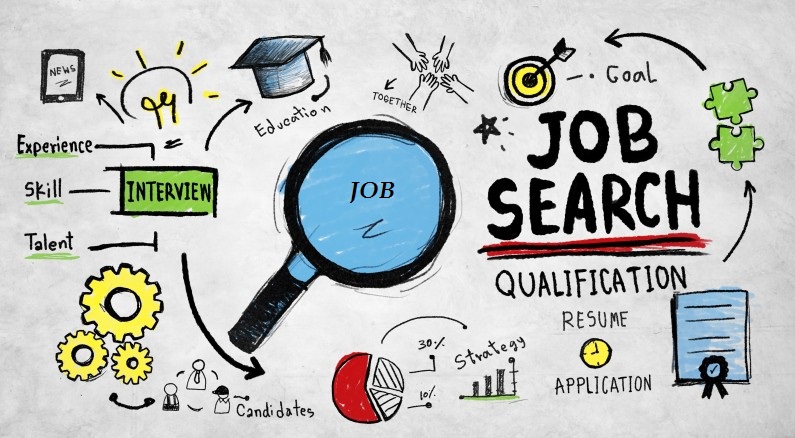


As a head, it’s the manager’s role to encourage his employees to surpass their expectations by taking responsible risks. An efficient leader can either embrace diverse thinking to measure one’s talent to innovate or distract the whole team to fall down. Never undervalue an employee’s ability as it will break the employee to perform. Have proper understanding before you evaluate or test your employee's abilities and potential.
A manager or a head should carry the skill to motivate his employees; as this is one of the greatest skills an entrepreneur should hold while leading a process or a team. Every organization goes through some tough growing pains, and this may be because of many reasons; like lack of infrastructure, resources, or cash would also make it extremely difficult to improve the company morale, but cash should not be a reason to discourage your employees. Even if you are wealthier, don’t show the money, which will not work.
Let us look at some better ways to boost the morale.
Be Kind & Praise
Everyone wants it and this is one of the greatest and easiest things to give. A praise from the CEO goes a lot beyond then you might think, but a small appreciation from the head is a good gesture to any employee. Praising every improvement that you see in your team members make them happy for sure, but it also increases their confidence and love towards their work.
Get Divest of the Managers
Can we not think any project without a project manager in any organization? That doesn’t seem to be happening also? But can we try it? Putting aside a project lead or a manager and empowering your staff to work together as a team rather than everyone reporting to one individual can do wonders. But which organization will think about it? The question here is what’s worse than letting your supervisor and your team down?
A manager or a supervisor will help or make the people to work together as a team, and this will often produce better projects faster. If the team is strong and united all the team members will enjoy the work and like to come in early, stay late, and devote more of their energy to solving the problems and deliver the project as estimated.

Respect their Ideas
Instead of always being the boss and telling people what they need to do. Make them share their ideas and see if that may work well. People hate being told what to do; they like others to respect their ideas and this has also worked well in many scenarios. You can add your idea to what they say to mix the ideas and promote them or proceed.
Do Not Criticize or Correct
No one will be ready to take criticism or corrections in their work. This will not only de-motivate them but also pull them down, which is not a good task for any organization. Try different options to explain to them why it will not work. Or you can even take an indirect example to get people learn and improve, from their mistakes, and fix them at the earliest. Ask, instead of pointing them for the mistakes you can ask them the best way to approach the problem and how best you can fix it.
Treat as Leaders
Making everyone leaders may sound different, but it’s not making them leaders, but making them feel that you give importance to their decision and respect it. Have top performers’ get introduced in the teams and organization and highlight their performance and strengths to let them know that because of their excellence, you want them to be the example for others. Set-up appreciations and calculation bars to show-up their performance; which will motivate them to live up to their reputation as leaders.

Give a Surprise
Take your team out and have a good talk. Introduce new policy which will help them and company grow. This is an easy way to remind them that you notice and appreciate their work and this may also help others to be close to the team and think what they are missing out.
Rewards & Recognitions
Both of them play a vital role in motivating your employees. This is an old technique, but believe me, it works wonders. When an organization thing or recognize their employee's performance and it is rewarded its self-makes your employee feel positive about their company. Announce their performance in front of teams, or stick on whiteboards or treat them with goodies. You can do this every quarter or by the half of the year. Start reward and recognition policy which will help the organization to walk closer with their teams.
Have Company Get Together
Doing things as a group will not help in many scenarios, instead, plan for a company get together once in a while; as this can go a long way. Have a company picnic or anniversary. As many companies are even missing their anniversaries due to lack of time. Holding happy hours is a good idea now and then; don’t wait for holidays to do such activities. Organize events once in a year or the time your project is out will remind your staff that you’re all in it together.
Share the Rewards
When your company does well or your project is success start celebrating it. Do not postpone your reward as this will be the best time to let everyone recognize your efforts. You can share the project in and out and if you have any disappoints too with the teams. share your future plans how you want them to support you.
...
Read More

Whenever we go for any interview, it is ever time we think that what is going to happen and what questions do we need to answer. In my few years of experience, I have found few questions to be best to ask in an interview. “It’s not about me, though, it’s about you”. Here are those questions you need to ask in a job interview. I have put this list collectively because so often we can forget what an interview’s all about. It sure feels like it’s about you, but it’s really not.
An interview is in fact about how you can help your future superior and future employer succeed. You can find out what their requirements and hopes are and are they matching up with your background and experience with what they need.
Overlooking these basic specifics about the interview is easy. There will be much else going on in your work, your life, and in your job search, so you often miss out these basic things which will result very bad from the interviewer’s point of view; which is not at all a good sign for you.
Look into some conversations in between, and explore what will you get when you ask meaningful questions.
When I asked how do I get a “gold star” when an evaluation is going on, the interviewers’ faces lit up!” You will never know where it will land you, but I can tell, if you ask such meaningful questions at the end, you may get a positive result.
Ask the interviewer about his leadership style and reward system, he will feel good and his face lit up like a Christmas tree, and land you in great.
After he answers the question, say “how can I help you receive your next promotion?”, he will begin to give you advice on how you should negotiate for a higher starting salary.
And that’s exactly the point. By asking these type of questions, which focus on the needs, personality, and preferences of your future boss and future employer, you’re demonstrating that you are somebody who is genuinely interested in their well-being. And the more interest we show in others, the more promise they show to aiding our cause.
Let’s go into the topic and look at best interview questions. My aim here is to arm you with easy-to-ask, revealing-to-answer questions for you to take with you to an interview:

I hope you find these questions useful in your interviews!
...
Read More

Use social media to make your job search more effective and efficient. We can see that social media profiles have become an important part of our everyday life, whatever technology or platform you choose you’re likely to have a few different accounts online. You can create your own brand by making your profiles online, especially when working in digital it is very important to realize what you add online!
Dos

Don'ts
As long as you’re conscious about what you put online, you’re on the right track! If you have any questions, don’t be shy! Head over to our LinkedIn, Twitter, Facebook or Google+. We practice what we moralize!, and drop us a line!
...
Read More

For many businesses, phone plays major part in daily operations. This is because businesses need them in order to call out and to be in contact with vendors, business associates, and
Clients or Customers are also valuable in any business; as they open a door of communication by allowing them to contact the business at any time during its hours of operation. As important as the phone is, it is just as essential that in every businesses you should know the difference between what is good and what is bad phone etiquette.
Everyone who are directly involved with people and phone should know and understand how they need to interact with clients and business associates over it. This will either portray them in a positive light or a negative one as it depends how good you take them. This may happen with the people who are bad phone or call etiquettes or who are poorly trained employees, managers, or business entrepreneurs. Telephone uses have an extreme negative effect on their businesses when they don’t handle the calls properly. For this reason, it is very important that every company should focus on training their associates properly on good and bad phone practices.
When Is A Call The Right Way To Communicate?
The method of communication should be direct and appropriate to the audience, nature and the situation of the message be very clear to the person on other side. As we are aware that a call is the best way to communicate whether it is personal, professional or a business calls. Other period your task will be best accomplished with an instant message or SMS. And, even sometimes email will also be the best way to go.
Do’s
Don’ts
...
Read More

Your CV plays a vital role in explaining you better without your presence. This is the first step that makes you through to reach the right door. Once your CV reaches out the right place it’s up to you to impress the recruiter and prove that you are really worth of the position offered. Here are the key points which will help you make good impression from the get-go.
You need to be very active when you have this type of question asked. The interviewer wants to see how serious you are about this position and how good you have prepared yourself. Research well before you hit the interview panel; your homework on the company will help you to stand out of the crowd. Be very clear why they need to get in to their company and the reason you are looking for new job should also be very impressive.
This is the universal question asked by any interviewer. Before you starts explaining yourself list all your skills and how they will be directly applicable for the company if they pick you. Project your achievements from your previous employers, preferably quantified sales, and savings on paper clips. Do not focus on what you want to get out of this job you are interviewing for, as this should be only all about you and what they will get if they hire you.
When you get this type of questions, you have to well prepare yourself and explain how well you can work with the team. Elaborate yourself and give the best examples of your team achievements and recognition you have received. Tell how strong you are alone and how well you will be equipped when you are with a team as per requirements.
It’s the time you have to praise yourself before the interviewer. While doing that give specific examples that you have achieved greatness in the past and tell them if you have solved any serious issue for your company’s biggest client. Whatever nice and tangible achievement makes you special can be memorized and get ready to deliver it when prompted.
This is the final question which gives you a hint that you are probably doing well. Be very clear and indicate how much you are expecting. So that the interviewer can calculate how much money they can make from you and when to begin doing so. Do not look so desperate, which will not help you any way. Indicate that you will be flexible and that there will be a way to work out both the financials and start date, should you get to that stage.
Finally, what is your experience of these five questions vs. small talk in interviews?
...
Read More